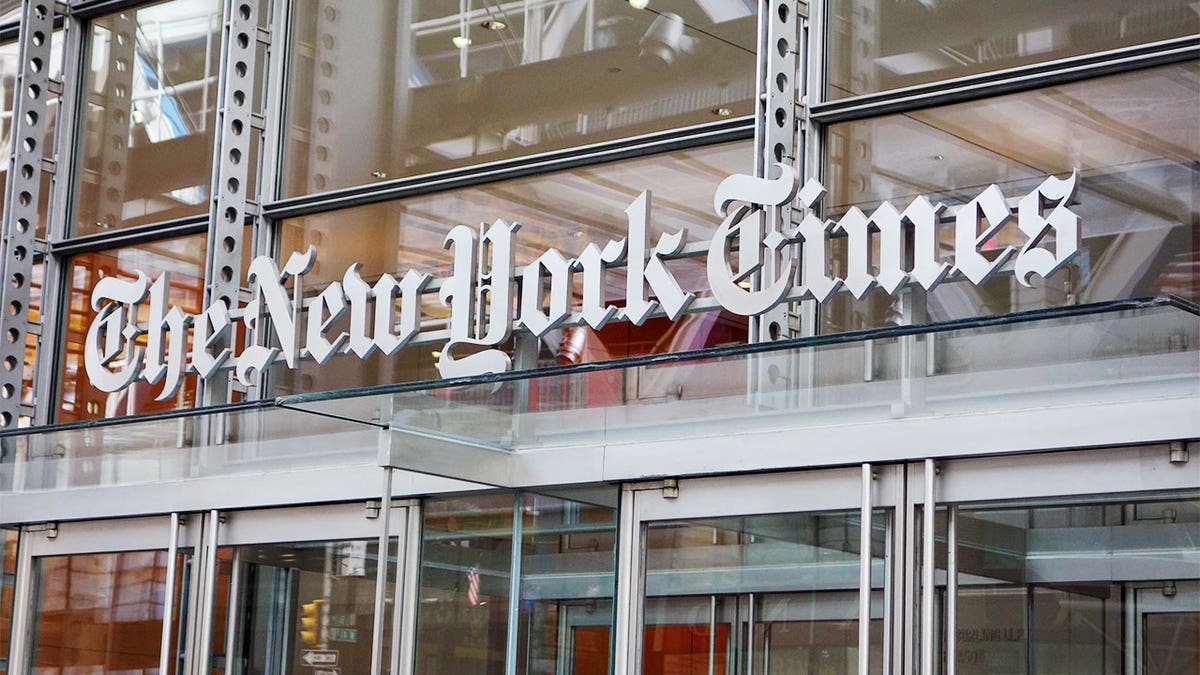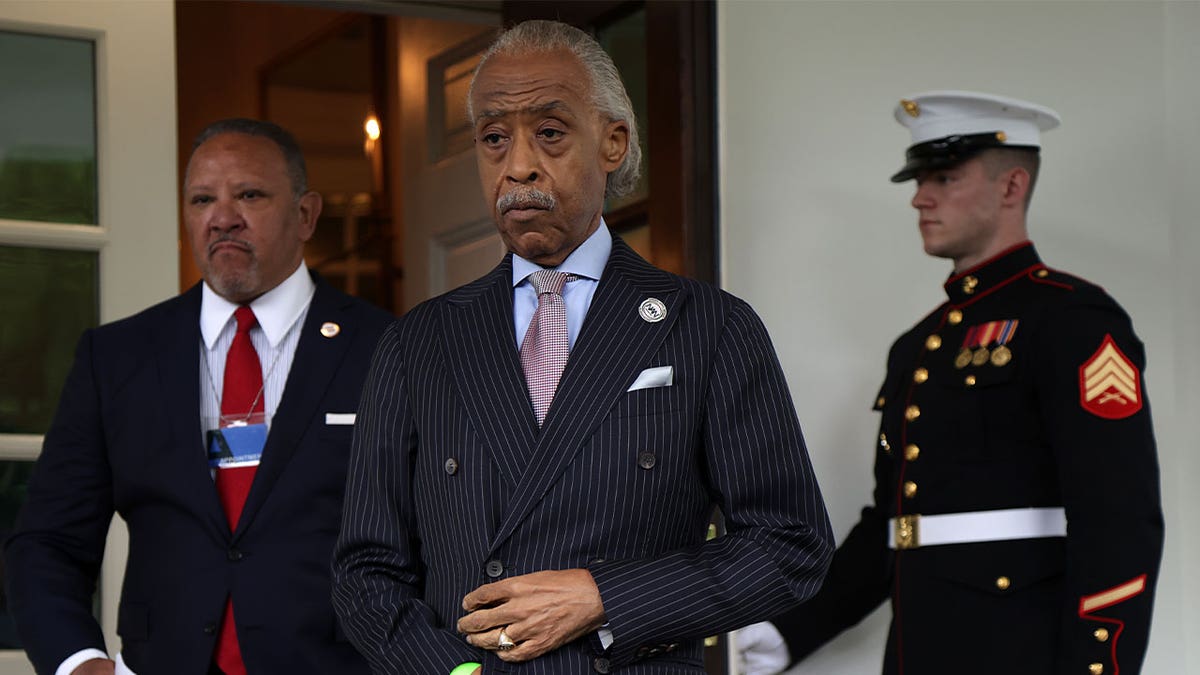Yale Law School protest a 'terrible glimpse' at what could be the next generation of American lawyers: Murray
Author Douglas Murray reacts to Yale Law students disrupting a free speech panel.
To the chagrin of some prominent progressives, several media personalities and liberal-leaning news sites have recently entertained discussions of free speech issues, cancel culture and illiberalism that have long dominated college campuses and both sides of the political aisle.
The New York Times published an essay from a University of Virginia college student, Emma Camp, in early March that touched off a left-wing uproar.
The essay, headlined, "I Came to College Eager to Debate. I Found Self-Censorship Instead," argued that college students on either side of the political aisle are afraid to speak their minds in public.

People walk on a walkway at the University of Washington main campus in Seattle, USA.
"My college experience has been defined by strict ideological conformity. Students of all political persuasions hold back — in class discussions, in friendly conversations, on social media — from saying what we really think," she wrote. Camp described herself as liberal and said the backlash people get for unpopular opinions is "commonplace."
LIBERALS ERUPT AT COLLEGE STUDENT'S NYT OP-ED ABOUT BEING AFRAID TO SPEAK OUT ON CAMPUS
Her essay prompted sharp criticism from progressives, journalists and more. Anthea Butler, an MSNBC columnist and chair of the Religious Studies department at the University of Pennsylvania, said the article was silly and the New York Times was the "laughingstock of Twitter" for publishing it.
Elie Mystal, the far-left justice correspondent for The Nation, complained about her getting a platform.
"The college woman complaining about being canceled in the New York Times has now gotten more of a platform in the New York Times to complain about people's reactions to unpopular views *than I have,* to put things in a bit of perspective," Mystal wrote.
Ben Collins, a reporter for NBC News, also took issue with the headline and photoshopped his own version into a screenshot of Camp's op-ed. His headline read, "People didn't like this for some reason??? Put me in the biggest newspaper you can find please."

U.S. District Judge Jed Rakoff sided with The New York Times. (Photo by DON EMMERT/AFP via Getty Images) (DON EMMERT/AFP via Getty Images)
Nikole Hannah-Jones, founder of the controversial 1619 Project, said on Twitter she thought the piece was "thin" and said she hasn't "met a single Black person at UVA who has found this a particularly progressive institution."
"If the best example she has of repression is a room feeling tense, shifting in seats, I wonder what she came to college for?" she tweeted, also criticizing the polling Camp referenced in her piece, conducted by the Foundation for Individual Rights in Education, which found that 83% censor themselves at least part of the time.
Karol Markowicz, a Fox News columnist, told Fox News Digital that progressives are on the "losing side" of the free speech debate, and are "lashing out because of it."
"They have forced the rest of the left to conform to their extremely limited point of view and the result is people, even and especially those on the left, are afraid to speak up," she said.
NEW YORK TIMES SLAMS CANCEL CULTURE, ATTACKS ON FREE SPEECH DESPITE PAST TOM COTTON OP-ED FIASCO
The New York Times also ran an editorial weeks later that contended, "America has a free speech problem." The editors said that "people should be able to put forward viewpoints, ask questions and make mistakes and take unpopular but good-faith positions on issues that society is still working through" without the fear of being canceled.
The editorial board also noted a poll the paper commissioned with Siena College that found just 34% of Americans believe they "enjoyed freedom of speech completely." The authors argued that if speech is hindered, the "society loses its ability to resolve conflict, and it faces the risk of political violence."
Fox News contributor Joe Concha told Fox News Digital the New York Times' editorial board piece was "laughable" considering they forced one of their opinion editors to resign "simply for the crime of publishing an op-ed from Tom Cotton who argued for the use of the National Guard when mostly peaceful riots got out of control in 2020."
Concha also said that to some on the Left, "it is a matter of free speech," but also "a matter of right and wrong speech."
"If deemed the wrong speech, which primarily are conservative perspectives, then that needs to be stomped out and eliminated particularly on college campuses. All in the name of protecting students from ‘dangerous rhetoric,’" he continued.
MSNBC's Al Sharpton appeared to agree with the Times editorial in a recent appearance on "Morning Joe," saying it was "fascinating."
"But we've gotten to the point now where if you even disagree with what is considered trendy or what is considered right by either the far right or the far left, all of a sudden you're canceled. And that gets very close to banning free speech and free expression," Sharpton said.

WASHINGTON, DC - JULY 08: Civil rights leaders Marc Morial (L) of National Urban League and The Rev. Al Sharpton (2nd L) of National Action Network come out from the West Wing of the White House to hold a news briefing on July 8, 2021. (Photo by Alex Wong/Getty Images) (Alex Wong)
However, several political commentators and journalists were critical of the New York Times' assertion that Americans are losing hold of what they describe as a "fundamental right as citizens of a free country: the right to speak their minds and voice their opinions in public without fear of being shamed or shunned."
Will Bunch, in a column for the Philadelphia Inquirer headlined "America has a New York Times-doesn’t-get-the-First Amendment problem," argued the paper didn't know what a fundamental right "actually is."
"The right is to speak without fear of prosecution. No one gets to say dumb sh-- and just walk off without repercussion," Boston Sports Journal writer John Karalis said, criticizing the editorial board's piece.
Medical journalist Liz Highleyman said while people have the right to speak their minds, they "don't have a right to not be criticized" for it, and co-founder of NPR's Planet Money Adam Davidson said if he worked at the New York Times, he would consider quitting.
J.K. ROWLING PUSHES BACK AGAINST PUTIN'S ‘CANCEL CULTURE’ COMMENT
MSNBC's Joe Scarborough recently brought up instances of speakers being discouraged by students from speaking at universities, including Condoleezza Rice, who declined to speak at Rutgers University after students and faculty spoke out against her attendance, and Christine Lagarde, who also declined to speak at Smith College after student and faculty backlash. Scarborough said that the "insanity" still happens on college campuses.
He contended that what he's heard from his own children's peers is that students at prestigious universities are afraid to raise their hands and speak their minds. He also noted a fear of their opinions being posted to social media and then not having a social life because of it.

FILE - In this Feb. 26, 2015, file photo, students walk on the University of California, Los Angeles campus. Xiaoning Sui, 48, of Surrey, British Columbia, is accused of paying $400,000 to get her son into the University of California, Los Angeles, as a fake soccer recruit. She has become the 52nd person charged in a sweeping college admissions bribery scheme, according to an indictment unsealed Tuesday, Sept. 17, 2019, in Boston's federal court. (AP Photo/Damian Dovarganes, File)
A professor at Princeton University, Eddie Glaude Jr., joined "Morning Joe" for a discussion about a Washington Post op-ed written by Erwin Chemerinsky, the dean of UC Berkley School of Law, and chancellor of the University of California Irvine Howard Gillman, headlined: "Free speech doesn't mean hecklers get to shut down campus debate."
The authors referenced two instances of what they call a "heckler's veto," in which speakers are shut down while at speaking events on college campuses by students that deem their speech to be unacceptable. The first was the Yale Law School students who disrupted a free-speech event on campus that included two speakers, one conservative and one liberal, with the hope of presenting a bipartisan front when it came to free speech issues.
The other happened at UC Hastings where Ilya Shapiro, who was placed on leave at Georgetown over a poorly phrased tweet criticizing President Biden's pledge to put a Black woman on the Supreme Court, was shouted down by table bangs and several students yelling "get out."
Glaude said he "agreed with the basic premise of the op-ed," but that the "framing is problematic."
CLICK HERE TO GET THE FOX NEWS APP
"I don't know if its best thought of as free speech," he said. "I think it might be thought of better as what do we take to be acts of civil disobedience," adding that when certain students feel that a speaker is problematic and "represent a threat" to them, "they make choices."

